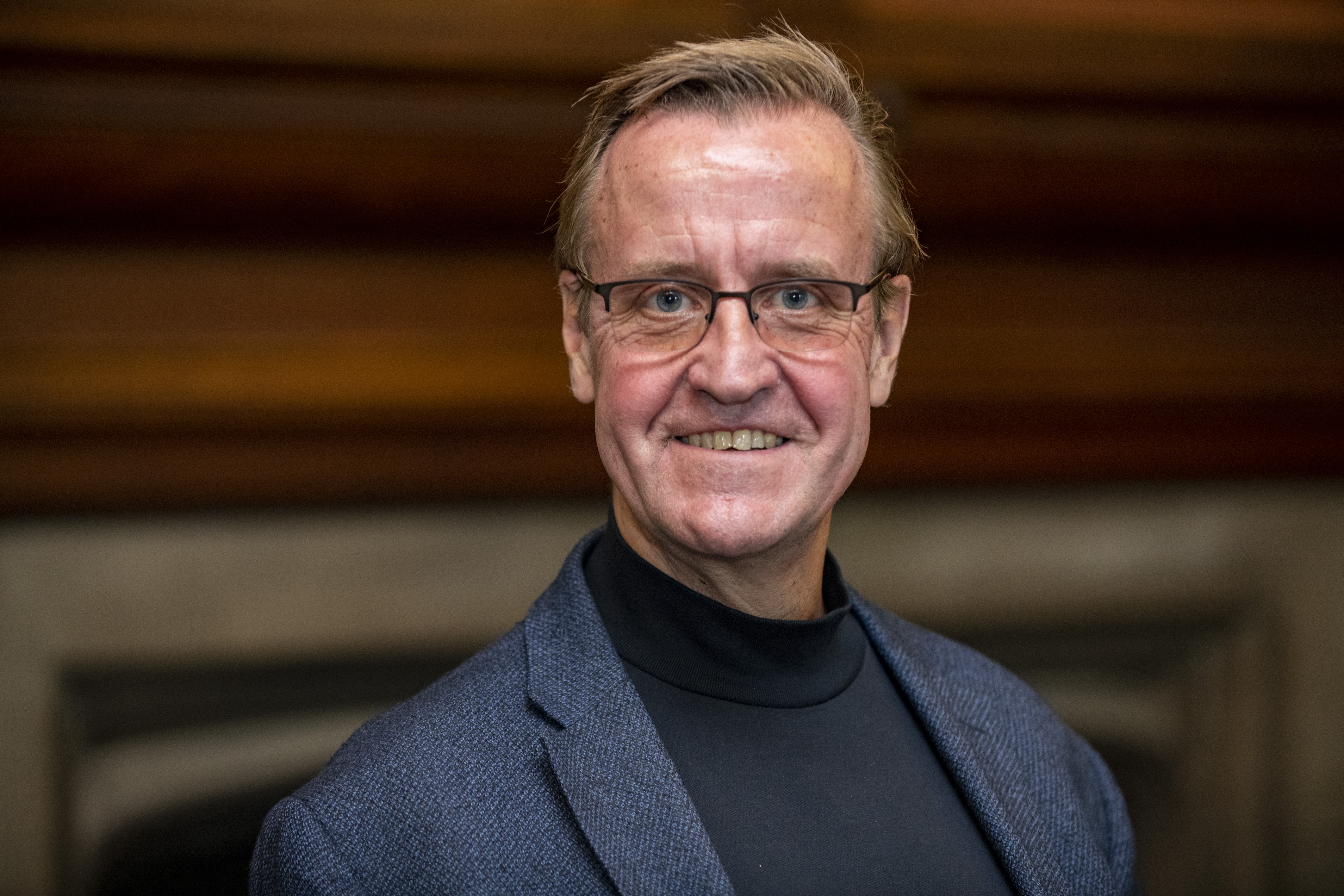%20Robert%20Barro%20(1).jpg)
Robert J. Barro is the Paul M. Warburg Professor of Economics at Harvard University and a research associate of the National Bureau of Economic Research. He has a PhD in economics from Harvard University and a BS in physics from Caltech. Barro is coeditor of Harvard’s Quarterly Journal of Economics and was previously president of the Western Economic Association, vice president of the American Economic Association, a viewpoint columnist for Business Week, and a contributing editor of The Wall Street Journal. Barro has been at the economics department at Harvard since 1987 and previously held positions at the University of Chicago, the University of Rochester, and Brown University. He is a fellow of the Heritage Foundation and the Hoover Institution.
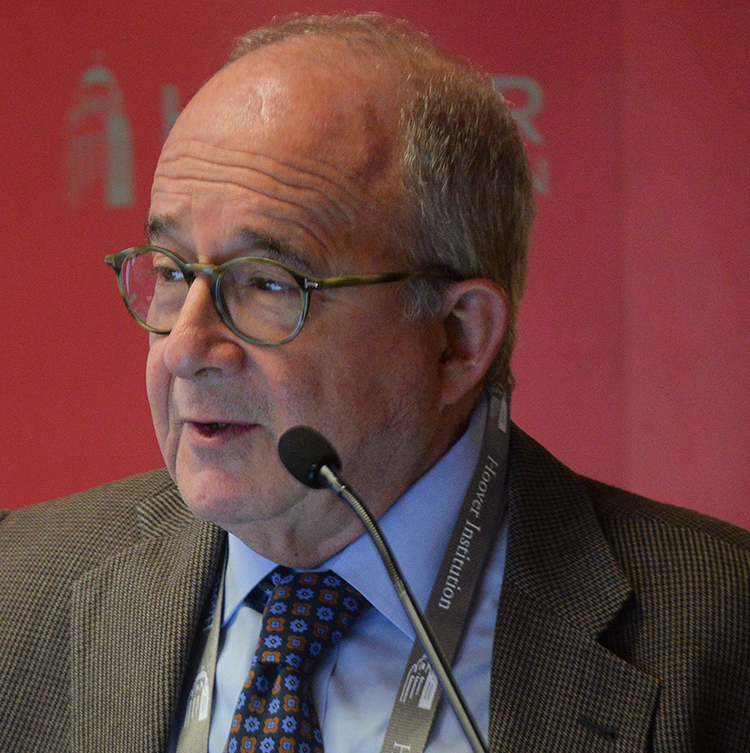
Michael D. Bordo is a Board of Governors Professor of Economics and director of the Center for Monetary and Financial History at Rutgers University. He is the Ilene and Morton Harris Distinguished Visiting Fellow at the Hoover Institution. He has held previous academic posts at the University of South Carolina and Carleton University in Ottawa, Canada, and was a visiting professor at Cambridge, Princeton, and Harvard Universities, and others. Bordo was also a visiting scholar at the International Monetary Fund, the Federal Reserve Banks of St. Louis, Cleveland, and Dallas; the Federal Reserve Board of Governors; the Bank of Canada; the Bank of England; and the Bank for International Settlements. He is a research associate of the National Bureau of Economic Research and a member of the Shadow Open Market Committee. He has published eighteen books on monetary economics and monetary history, most recently The Historical Performance of the Federal Reserve: The Importance of Rules (Hoover Institution Press, 2019). He is the editor of a series of books for Cambridge University Press: Studies in Macroeconomic History. He has a BA from McGill University, an MSc in economics from the London School of Economics, and a PhD from the University of Chicago.
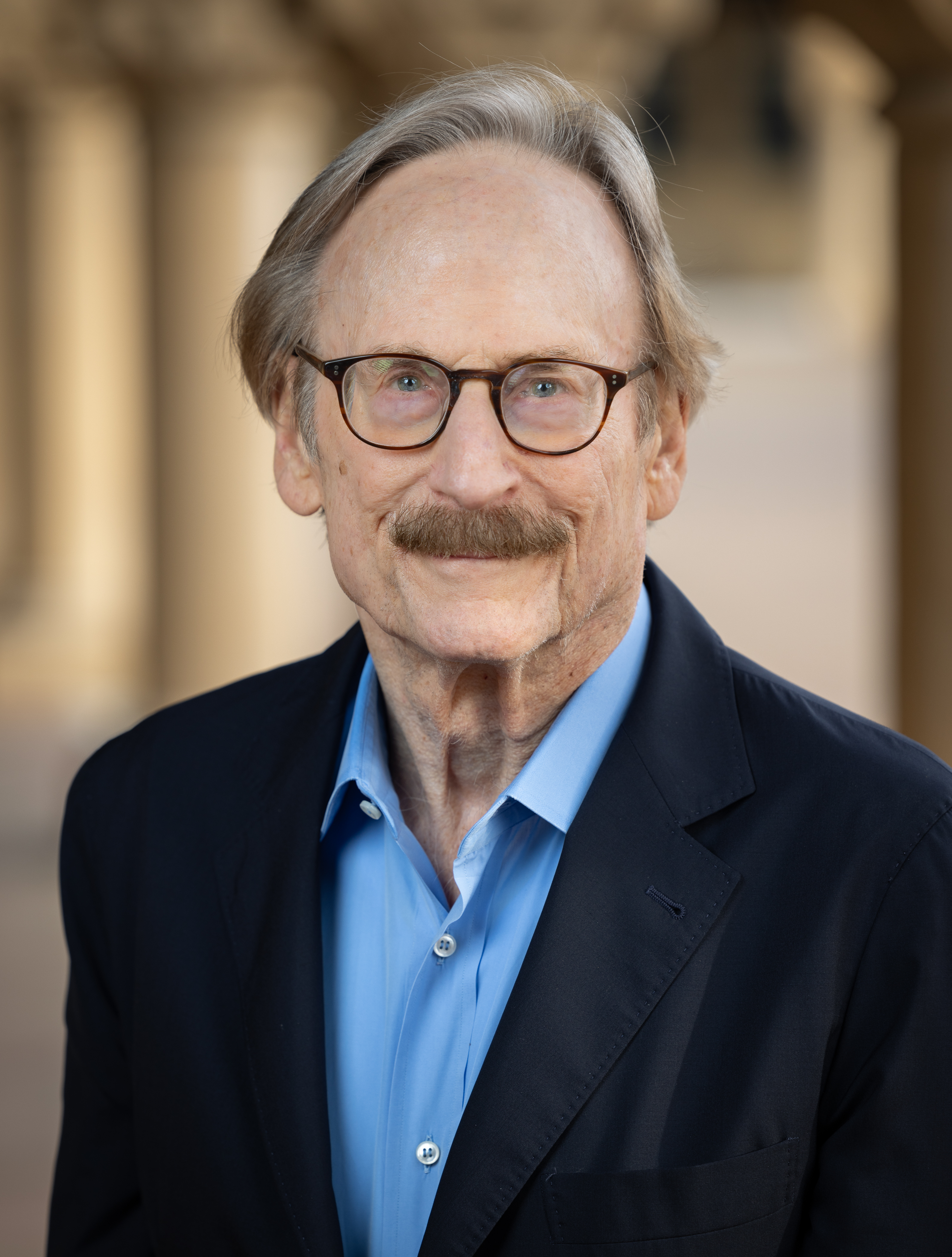
Michael J. Boskin is Stanford’s Tully M. Friedman Professor of Economics, a senior fellow of the Hoover Institution, and a research associate of the National Bureau of Economic Research. As chair of President George H. W. Bush’s Council of Economic Advisers, he helped resolve the Third World debt and the savings and loan financial crises, expand regional and global trade, introduce emissions trading in environmental regulation, and control government spending while protecting the defense budget. On candidate Ronald Reagan’s tax policy task force, he helped develop policies toward lower marginal tax rates, tax bracket inflation indexing, accelerated depreciation, and IRAs and 401(k)s. He later chaired the CPI Commission, whose report transformed the way government statistical agencies around the world measure inflation, GDP, and productivity. His current research focuses on the effects of public policies on economic growth and income distribution. Recent publications include Defense Budgeting for a Safer World (Hoover Institution Press, 2023) and American Federalism Today (Hoover Institution Press, 2024). He is currently working with John Cogan and Lee Ohanian on a project related to California economics.
.jpg)
Lawrence J. Christiano is the Alfred W. Chase Professor of Economics at Northwestern University. He is a former PhD student of John B. Taylor at Columbia University. Larry Christiano's research has been focused primarily on the problem of determining how the government's monetary and fiscal instruments ought to respond to shocks over the business cycle. This research has two parts: one involves formulating and estimating an empirically plausible model of the macroeconomy, and the second involves developing economic concepts and computational methods for determining optimal policy in an equilibrium model. He is a Fellow of the Econometric Society, and a research associate of the National Bureau of Economic Research.
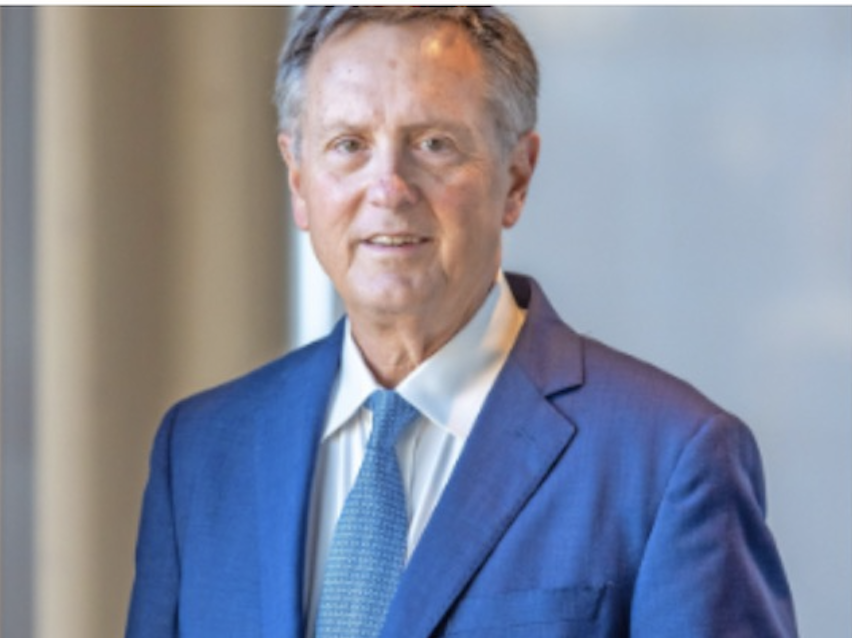
Richard H. Clarida is the C. Lowell Harriss Professor of Economics and International Affairs at Columbia University and a global economic advisor and managing director in the New York office of Pacific Investment Management Company (PIMCO). He was previously the firm’s global strategic advisor from 2006 to 2018. He served as vice chairman of the Board of Governors of the US Federal Reserve System from September 2018 to January 2022. Previously, he was assistant secretary of the Treasury for economic policy, serving as chief economic advisor to two US Treasury secretaries. Earlier in his career, he was with Credit Suisse and Grossman Asset Management. He has 26 years of investment experience and holds a PhD and a master’s degree in economics from Harvard University. He received an undergraduate degree with Bronze Tablet Honors from the University of Illinois.
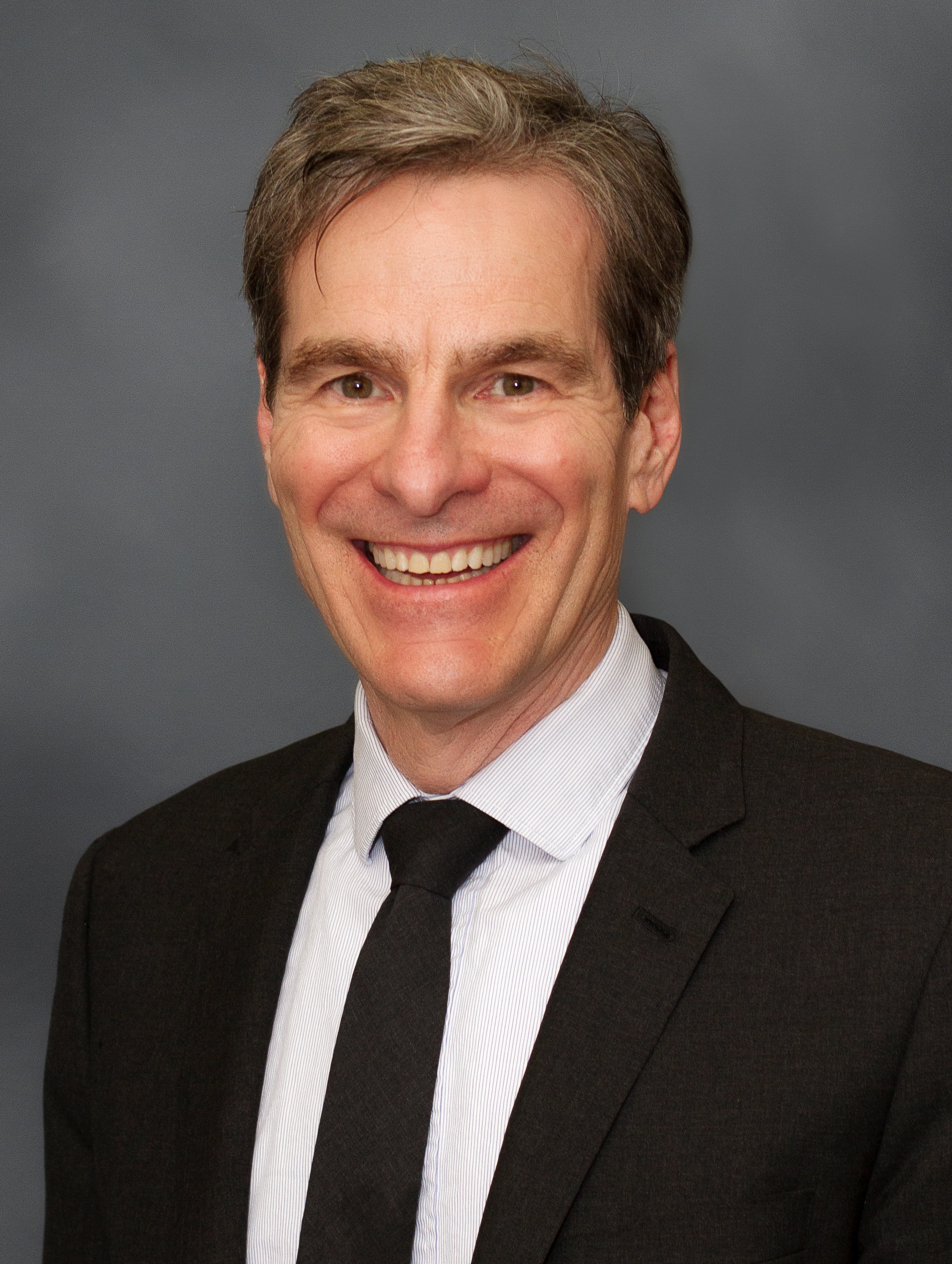
John H. Cochrane is the Rose-Marie and Jack Anderson Senior Fellow at the Hoover Institution. He is also a research associate of the National Bureau of Economic Research and an adjunct scholar of the Cato Institute. Before joining Hoover, Cochrane was a professor of finance at the University of Chicago’s Booth School of Business and previously taught in its Economics Department. He served as president of the American Finance Association and is a fellow of the Econometric Society. He writes on asset pricing, financial regulation, business cycles, and monetary policy. He has also written articles on macroeconomics, health insurance, time-series econometrics, financial regulation, and other topics. His books include Crisis Cycle: Challenges, Evolution, and Future of the Euro (Princeton University Press, 2025, with Luis Garicano and Klaus Masuch), The Fiscal Theory of the Price Level (Princeton University Press, 2023), and Asset Pricing (Princeton University Press, 2001, rev. 2005). Cochrane frequently contributes op-eds to The Wall Street Journal and other publications and maintains the Grumpy Economist blog. Cochrane earned a bachelor’s degree in physics at the Massachusetts Institute of Technology and his PhD in economics at the University of California–Berkeley.
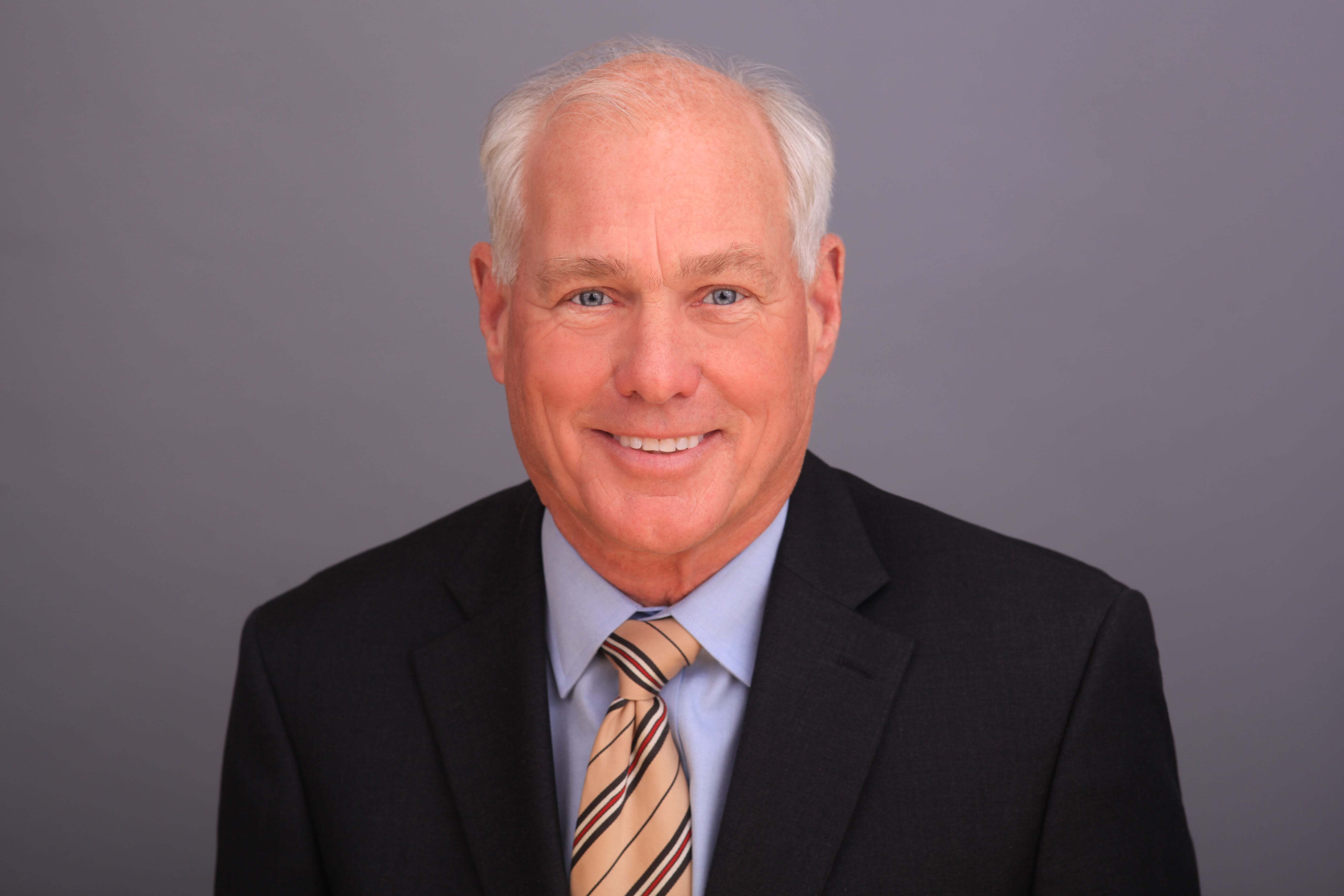
John F. Cogan is the Leonard and Shirley Ely Senior Fellow at the Hoover Institution. He was a member of the Stanford Public Policy program faculty from 1994 to 2019. His research is focused on US budget and federal entitlement programs. He received his PhD in economics from UCLA in 1976. In the 1980s, he served as assistant secretary for policy in the US Department of Labor and as deputy director of the Office of Management and Budget. He has served on numerous federal and state government commissions, including President George W. Bush’s Commission to Strengthen Social Security, the US Bipartisan Commission on Health Care (the Pepper Commission), and the National Academy of Sciences’ Panel on Poverty and Family Assistance. He is the author of The High Cost of Good Intentions: A History of Federal Entitlement Programs (Stanford University Press, 2017), which received the 2018 Hayek Prize. He also served on the Board of Directors of Gilead Sciences and the Board of Trustees of the Charles Schwab Family of Funds.
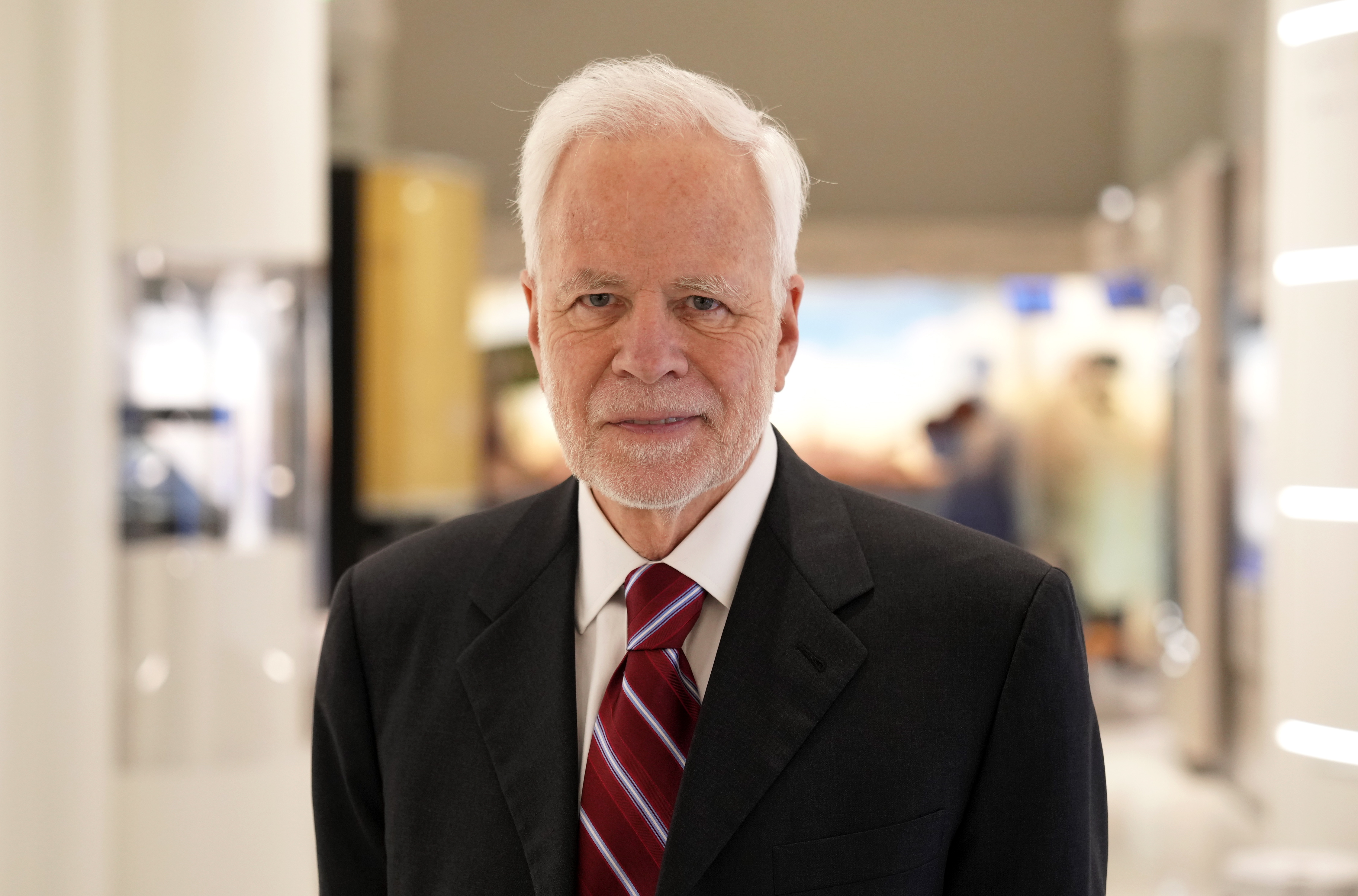
Barry Eichengreen is the George C. Pardee and Helen N. Pardee Chair and Distinguished Professor of Economics and Political Science at the University of California–Berkeley. He is a research associate of the National Bureau of Economic Research, research fellow of the Centre for Economic Policy Research, fellow of the American Academy of Arts and Sciences, distinguished fellow of the American Economic Association, corresponding fellow of the British Academy, and life fellow of the Cliometric Society. He has held Guggenheim and Fulbright fellowships and been a fellow of the Center for Advanced Study in the Behavioral Sciences at Stanford University and the Institute for Advanced Study in Berlin. He was a senior policy advisor at the International Monetary Fund, president of the Economic History Association, and, for 15 years, convener of the Bellagio Group. Among Eichengreen’s awards are the Economic History Association’s Jonathan Hughes Prize for Excellence in Teaching Economic History, the 2010 Schumpeter Prize, and the 2022 Nessim Habif Prize for Contributions to Science and Industry. He is a regular monthly columnist for Project Syndicate. His most recent book is In Defense of Public Debt, with Asmaa El-Ganainy, Rui Esteves, and Kris James Mitchener (Oxford University Press, 2021).

Sebastian Edwards is the Henry Ford II Professor of International Economics at the University of California– Los Angeles. From 1993 to 1996, he was chief economist for Latin America at the World Bank. He has advised numerous governments, financial institutions, and multinational companies and was codirector of the National Bureau of Economic Research’s Africa Project. Edwards has published fifteen books, among them Left Behind: Latin America and the False Promise of Populism (University of Chicago Press, 2011), American Default: The Untold Story of FDR, the Supreme Court, and the Battle over Gold (Princeton University Press, 2018), and most recently, The Chile Project: The Story of the Chicago Boys and the Downfall of Neoliberalism (Princeton University Press, 2023). Edwards has been president of the Latin American and Caribbean Economic Association and is currently a member of the Scientific Advisory Council of the Kiel Institute for the World Economy. He also served on California governor Arnold Schwarzenegger’s Council of Economic Advisers. He was awarded the 2012 Carlos Díaz- Alejandro Prize for his research on the Latin American economies. Edwards was educated at the Universidad Católica de Chile. He received an MA in economics and a PhD in economics from the University of Chicago.
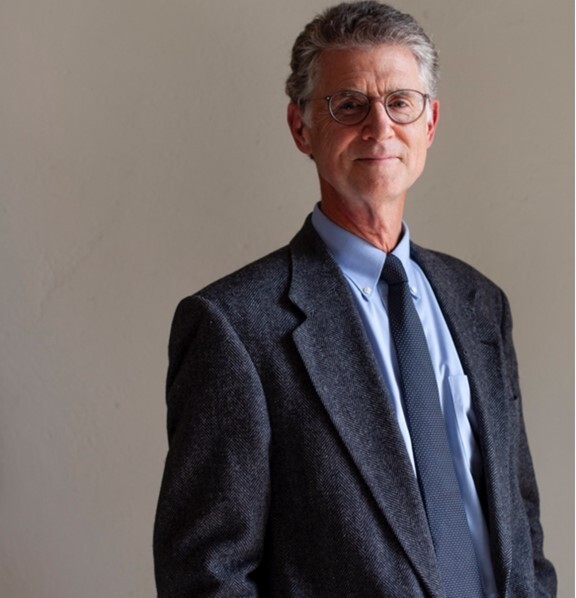
Peter R. Fisher served as under secretary of the US Treasury for domestic finance from 2001 to 2003. From 1985 to 2001 he worked at the Federal Reserve Bank of New York, concluding his service as executive vice president and manager of the Federal Reserve System Open Market Account. From 2004 to 2013 he worked at BlackRock, serving as chairman of Asia and as head of fixed income. From 2014 to 2021 he taught at the Tuck School of Business at Dartmouth. He is currently a senior advisor at BlackRock and a member of the Board of Directors of the Peterson Institute for International Economics. He has been appointed the distinguished senior fellow at the MIT Golub Center for Finance and Policy at the Sloan School of Management for the 2025–26 academic year.

Jon Hartley is an economist studying finance, labor, and macroeconomics. He is currently a Hoover Institution policy fellow, an economics PhD candidate at Stanford University, a research fellow at the University of Texas–Austin Civitas Institute, a senior fellow at the Foundation for Research on Equal Opportunity, a senior fellow at the Macdonald-Laurier Institute, and an affiliated scholar at the Mercatus Center. Hartley is also the host of the Hoover Institution podcast Capitalism and Freedom in the Twenty-First Century, a member of the Canadian Group of Economists, and the founding chair of the Economic Club of Miami.
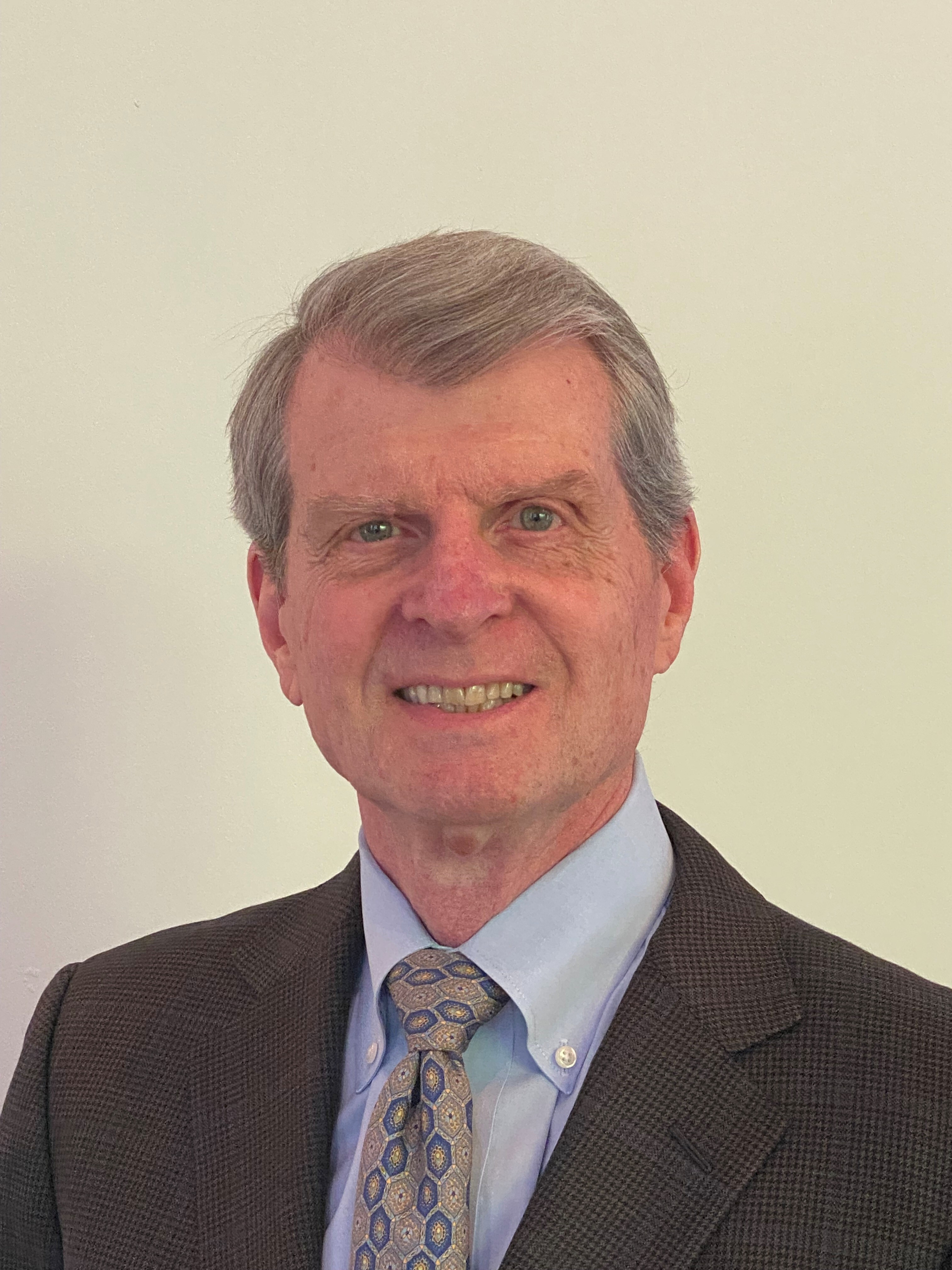

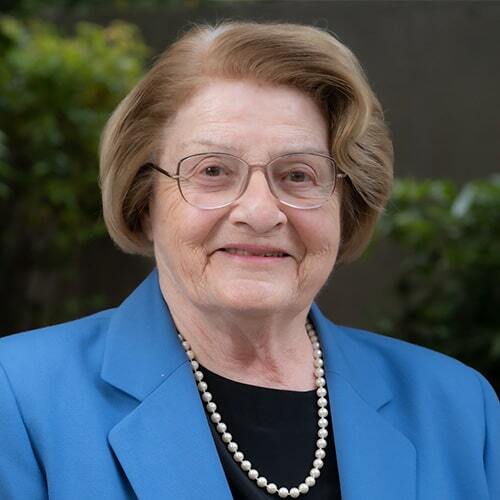
Anne O. Krueger is a professor of international economics at the School for Advanced International Studies, Johns Hopkins University, and Senior Fellow at the Stanford Center for International Development, Stanford University. She was first deputy managing director of the International Monetary Fund from 2001 to 2006 and vice president for economics and research at the World Bank from 1982 to 1986. She is a professor emeritus at Stanford University and also taught at Duke University and the University of Minnesota. She is a distinguished fellow of the American Economic Association and a member of the National Academy of Sciences. Professor Krueger has done research and published extensively on the international trading system and trade policy, the international monetary system, international financial institutions, and economic development. She has held visiting professorships in Australia, India, and Turkey, and has written on development and trade issues of those and other countries.

Andrew T. Levin is a professor of economics at Dartmouth College. Levin received his PhD in economics from Stanford University and worked at the Federal Reserve Board for two decades, including two years as a special advisor to the Fed Board on monetary policy strategy and communications. Levin joined the Dartmouth faculty in 2015. A regular visiting scholar at the International Monetary Fund, Levin is also a member of the Bank of England’s academic advisory group on digital currencies. Levin has served as an external consultant to the European Central Bank, an external adviser to the Bank of Korea, a scientific advisor to the central banks of Norway and Sweden, a consultant to the Government of Australia’s review of the Reserve Bank of Australia, and a visiting scholar at the central banks of Canada, Japan, Netherlands, and New Zealand; he has also provided technical assistance to the central banks of Albania, Argentina, Ghana, Macedonia, and Ukraine. His academic research has been highly influential, including widely cited articles in the fields of econometrics, monetary economics, and public health.
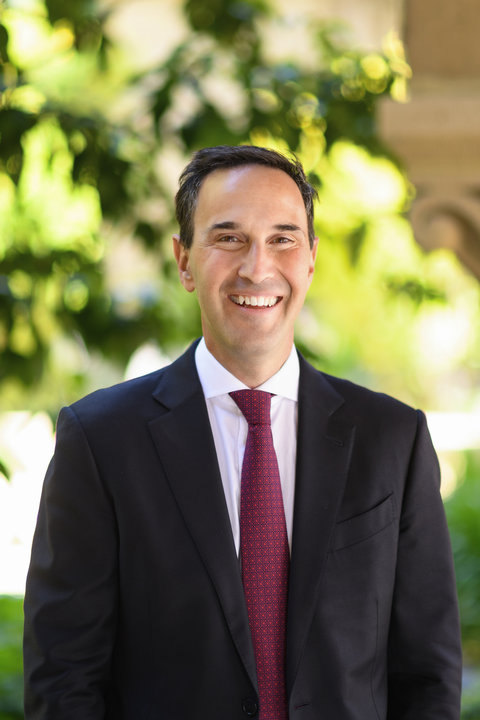
President Jonathan Levin, a leading economist recognized for his work in industrial organization and market design, previously served as the Philip H. Knight Professor and Dean of Stanford Graduate School of Business. Born in New Haven, he earned degrees from Stanford, Oxford, and MIT before joining Stanford’s faculty in 2000, where he became a renowned scholar and department chair. Levin’s research has addressed topics from incentive contracts and game theory to health insurance and market design. A recipient of the John Bates Clark Medal, he has been honored for both his scholarship and teaching. As GSB dean, he advanced the school’s leadership in management education, expanding programs and deepening societal impact. Levin also served on President Biden’s Council of Advisors on Science and Technology and has contributed to major public policy initiatives. He lives on Stanford’s campus with his wife, Amy, and their three children.
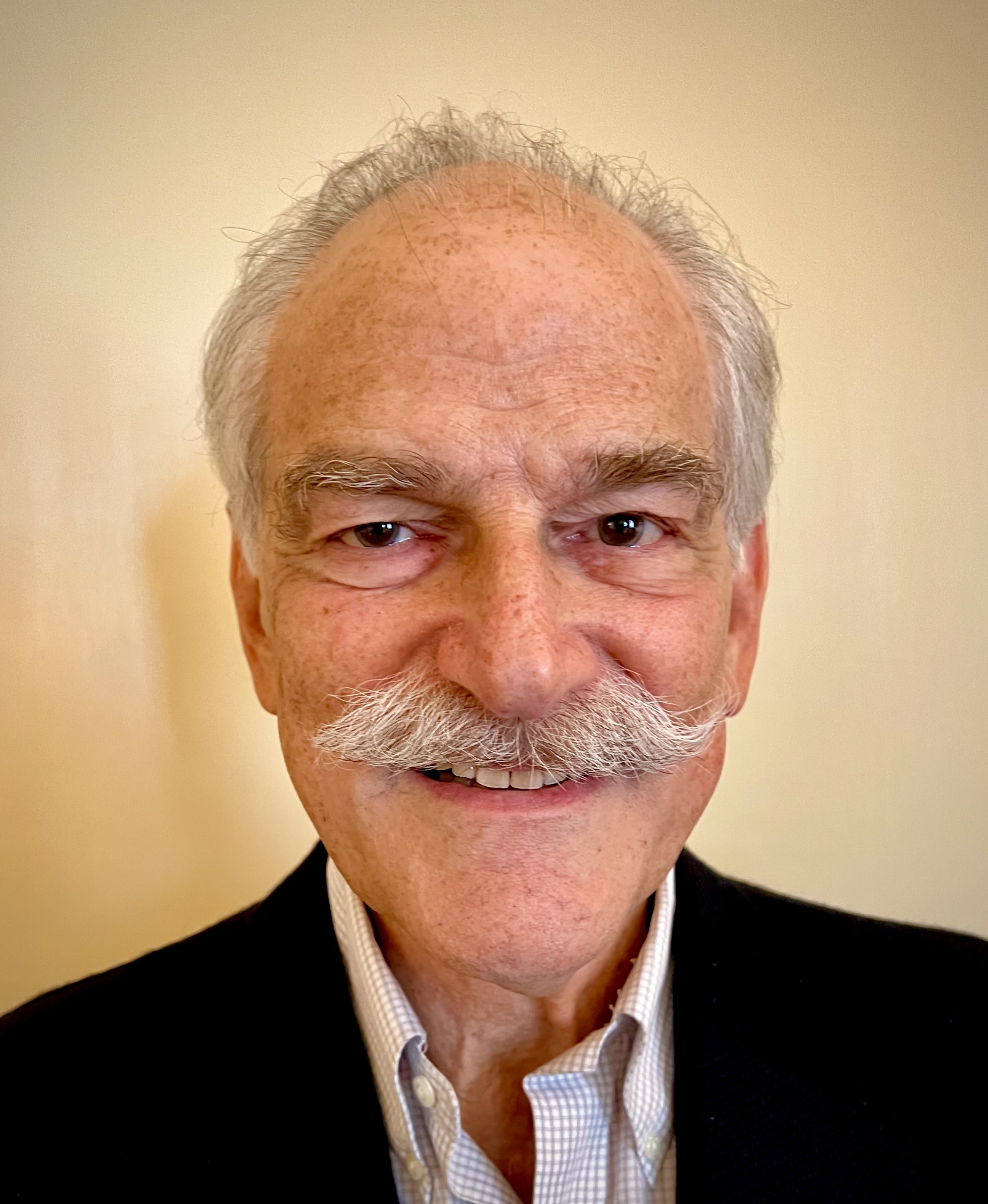
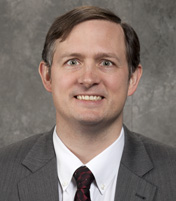
Edward Nelson is a senior advisor at the Division of Monetary Affairs at the Federal Reserve Board, where he previously worked from 2009 to 2015 in the positions of senior economist, chief of the monetary studies section, and assistant director. He has also worked at the Bank of England (1998‒2003), the Federal Reserve Bank of St. Louis (2003–9), and the University of Sydney (2015‒17). His publications include Milton Friedman and Economic Debate in the United States, 1932‒1972 (volumes 1 and 2, University of Chicago Press, 2020) and numerous articles on monetary policy strategy, monetary policy rules, and the inflation experience of the United States and other countries. He received a bachelor’s degree in economics from the University of Sydney in 1993 and a PhD in economics from Carnegie Mellon University in 1998.
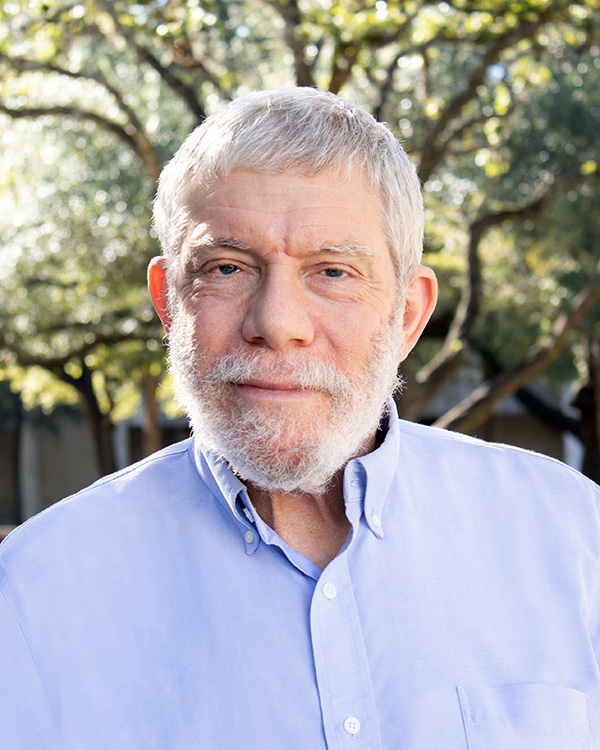
David Papell is the Joel W. Sailors Endowed Professor in the Department of Economics at the University of Houston, where he has taught since 1984. His fields of expertise are monetary policy, international economics, and applied time series econometrics. He previously taught at the University of Florida and has held visiting positions at the University of Pennsylvania, the University of Virginia, and the International Monetary Fund. He received a BA from the University of Pennsylvania and a PhD from Columbia University. He has published more than 60 articles in refereed journals, sponsored more than 40 PhD dissertations, and served as an associate editor for the Journal of International Economics, the Journal of Money, Credit, and Banking, the Southern Economic Journal, and Empirical Economics. Dr. Papell received a University of Houston Teaching Excellence Award in 1995 and a Research Excellence Award in 2016.
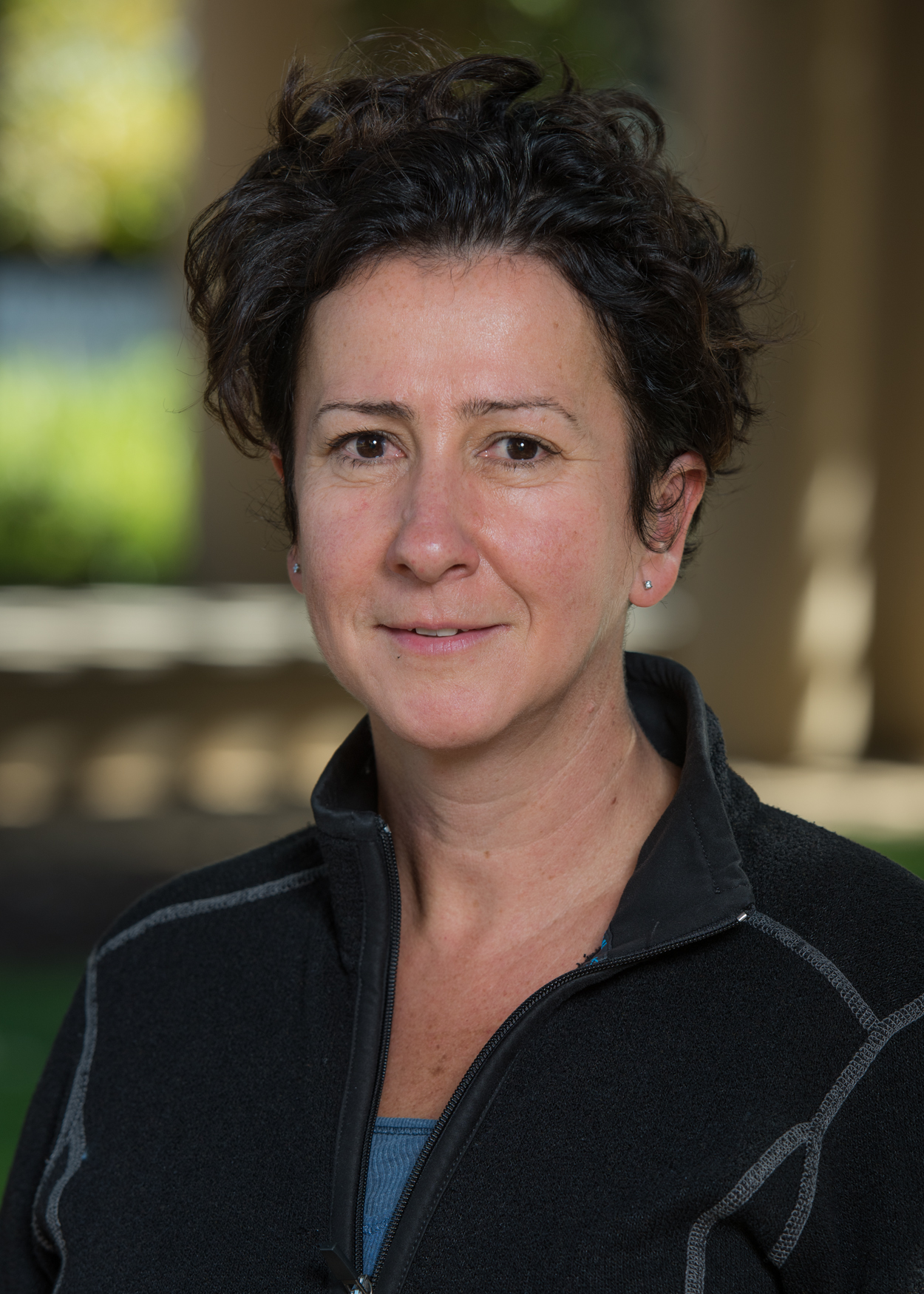

Valerie Ramey is a senior fellow at the Hoover Institution, a research associate of the National Bureau of Economic Research (NBER), and a research fellow of the Centre for Economic Policy and Research. She currently serves on the Panel of Economic Advisers for the Congressional Budget Office and is chair of the NBER Business Cycle Dating Committee. She has published numerous scholarly and policy-relevant articles on macroeconomic topics such as the sources of business cycles, the effects of monetary and fiscal policy, and the impact of volatility on growth. Her recent work has studied the size of government spending multipliers and has estimated the projected effects of climate change on economic growth. Her work has been featured in major media, such as The Wall Street Journal and The New York Times.
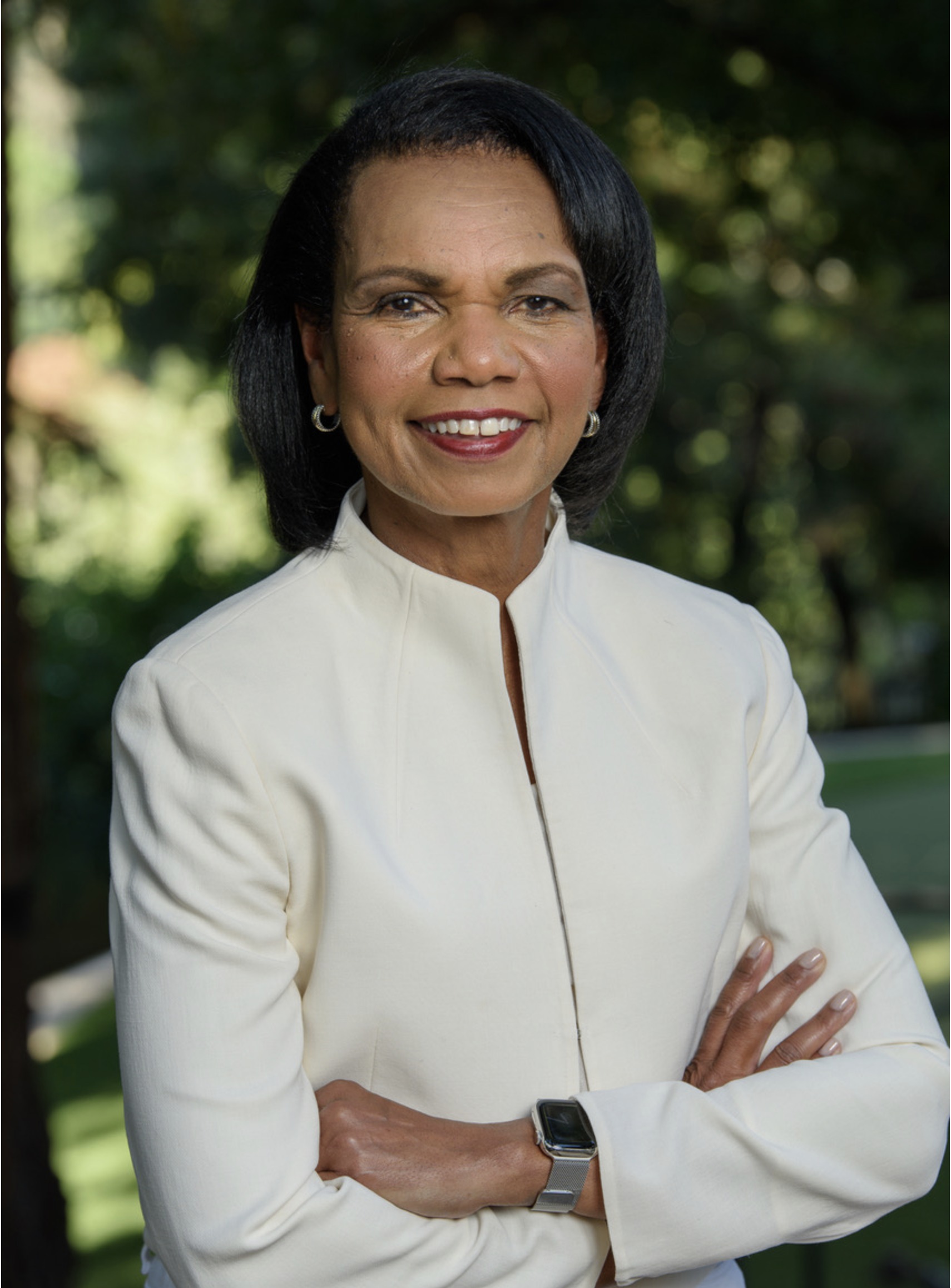
Condoleezza Rice is the Tad and Dianne Taube Director and the Stephenson Senior Fellow on Public Policy at the Hoover Institution. She is also the Denning Professor in Global Business and the Economy at Stanford’s Graduate School of Business and a founding partner of international strategic consulting firm Rice, Hadley, Gates & Manuel LLC. Rice served as the 66th US secretary of state (2005–09) and as national security advisor (2001–05) in the George W. Bush administration. She previously served on President George H. W. Bush’s National Security Council staff and as Stanford University’s provost. She has been on the Stanford faculty since 1981 and has won two of the university’s highest teaching honors. Rice is a fellow of the American Academy of Arts and Sciences and has been awarded over 15 honorary doctorates. Born in Birmingham, Alabama, Rice earned her bachelor’s degree, cum laude and Phi Beta Kappa, from the University of Denver; her master’s degree from the University of Notre Dame; and her PhD from the Graduate School of International Studies at the University of Denver, all in political science.
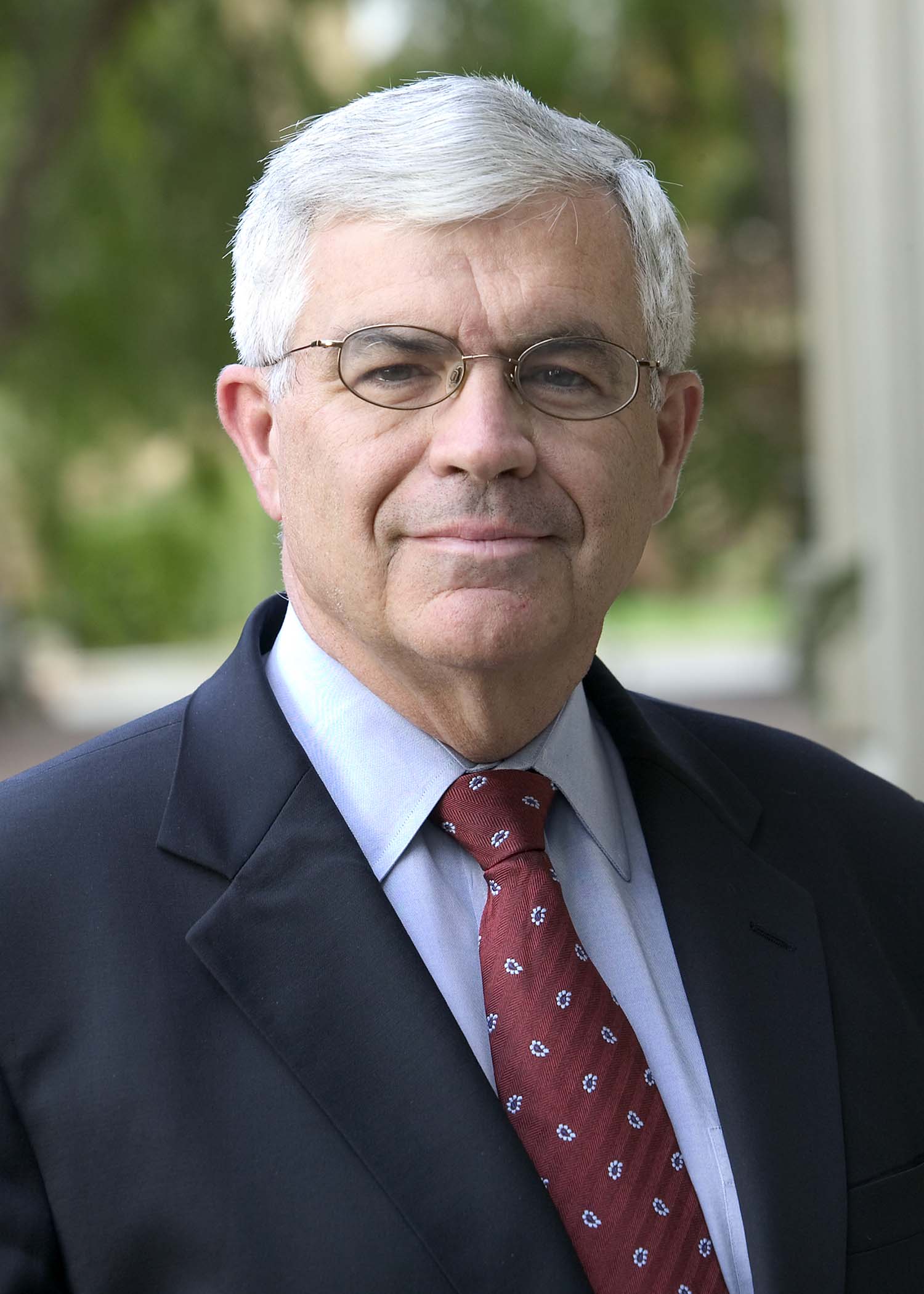
John B. Taylor is the George P. Shultz Senior Fellow in Economics at the Hoover Institution, where he chairs the Economic Policy Working Group and co-chairs the Technology, Economics, and Governance Working Group, and the Mary and Robert Raymond Professor of Economics at Stanford University. He also directs Stanford’s Introductory Economics Center and co-chairs the Faculty Council of the Stanford Emerging Technology Review. He has served as senior economist on the President’s Council of Economic Advisers; as under secretary of the Treasury for international affairs; as president of the Mont Pelerin Society; and on the G20 Eminent Persons Group on Global Financial Governance. Among his many awards are the US Treasury’s Alexander Hamilton Award and Distinguished Service Award, the Medal of the Republic of Uruguay, the Truman Medal for Economic Policy, the Bradley Prize, and the Hayek Prize for his book First Principles (W.W. Norton, 2012). His most recent books are Principles of Economics, 10th edition (with Akila Weerapana, FlatWorld, 2023), Choose Economic Freedom: Enduring Policy Lessons from the 1970s and 1980s (with George P. Shultz, Hoover Institution Press, 2020) and Reform of the International Monetary System (MIT Press, 2019). Taylor received a BA in economics, summa cum laude, from Princeton and a PhD in economics from Stanford.
